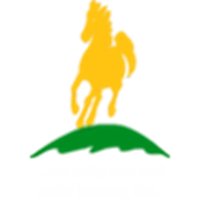Wrap around
The school provides care for 2 to 11 year olds outside term time (in the holiday club) and the pre-school year to 11 year olds in term time. Staff provide the supervision as well as activities including child led play, arts and crafts, and an opportunity to use the schools outdoor facilities.
Breakfast Club
Children can arrive any time after 8:00am (7:30am if booked into the Early start session). Sometimes children may have had their breakfast but for those who have not, a healthy selection of breakfast is offered continually throughout the session from 7.30am
After School Club
The children's time in afterschool club can be spent building dens, being creative, playing outside, reading, playing games and generally playing. During afterschool club we focus feon playing and developing our social skills, we believe these are of key importance to every child’s development and all children have the right to play! A healthy snack is provided to all children as soon as they arrive from school or after an school club if attended.
Children can be collected at anytime up to the end of the session which is 5.30pm.
Holiday Club
We also provide care for age 2 - 11 children during the school holidays: 8am-5.30pm Monday, Tuesday and Thursday and 8am-3pm on Wednesday's during all holidays (closed Bank holidays). Staff provide the supervision as well as activities including arts and crafts, sport, cooking, outdoor play and themed activities which change depending on the season.
Please click here for the February half term holiday booking form.
February half term activities and booking form
Learning during Wrap Around
During Wrap Around Care and holiday clubs, Staff follow EYFS for Reception and nursery children and Playwork Principles for children in school year one and upwards. Playgroup Principles are made up of eight main principles:
- All children and young people need to play. The impulse to play is innate. Play is a biological, psychological and social necessity, and is fundamental to the healthy development and well being of individuals and communities.
- Play is a process that is freely chosen, personally directed and intrinsically motivated. That is, children and young people determine and control the content and intent of their play, by following their own instincts, ideas and interests, in their own way for their own reasons.
- The prime focus and essence of playwork is to support and facilitate the play process and this should inform the development of play policy, strategy, training and education.
- For playworkers, the play process takes precedence and playworkers act as advocates for play when engaging with adult led agendas.
- The role of the playworker is to support all children and young people in the creation of a space in which they can play.
- The playworker's response to children and young people playing is based on a sound up to date knowledge of the play process, and reflective practice.
- Playworkers recognise their own impact on the play space and also the impact of children and young people’s play on the playworker.
- Playworkers choose an intervention style that enables children and young people to extend their play. All playworker intervention must balance risk with the developmental benefit and well being of children.

